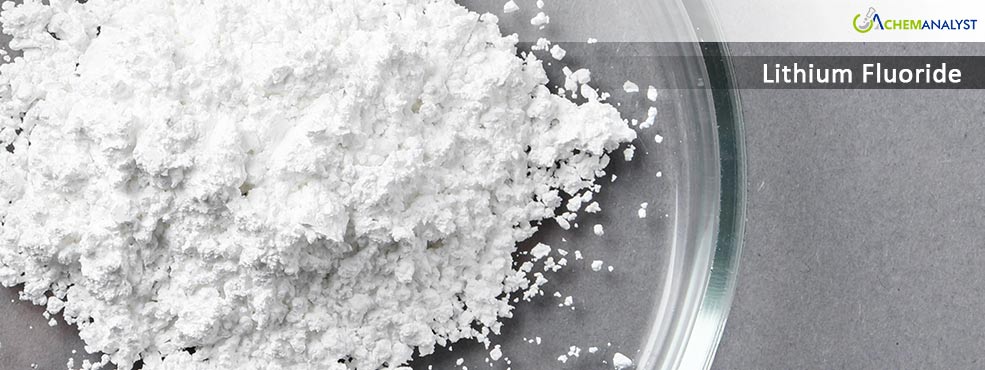Welcome To ChemAnalyst

Lithium fluoride market in the USA continues to face price fluctuations in the first half of February 2025 and this decline stemmed from cheaper goods entering the market. With limited support from upstream lithium carbonate and hydrogen fluoride markets contributed to the downward trend. Although demand from the electric vehicle (EV) and energy storage system (ESS) sectors showed early signs of recovery, price fluctuations and high inventories kept the lithium fluoride market in flux.
The lithium fluoride market in the USA faced pricing pressures as manufacturers sought to stay competitive in the market. Production adjustments and a gradual rise in demand tempered the overall impact of the price decline. However, sluggish buying activity and cautious purchasing behavior limited any significant recovery in lithium fluoride prices. Even though demand showed signs of improvement ahead of the Lunar New Year holidays in China, it remained insufficient to offset the supply-side pressures.
Upstream lithium carbonate prices displayed volatility, but suppliers largely maintained their pricing strategies with minimal adjustments. The Chilean government's projection of a 7% rise in lithium production to 305,000 tons in 2025 signaled stable supply conditions. However, the global lithium market faces a structural surplus, with an estimated oversupply of 89,000 tons in 2024 and 141,000 tons in 2025. This oversupply may continue to exert downward pressure on lithium fluoride prices in the coming months.
Battery manufacturing for EVs and ESS remains the primary driver of lithium fluoride consumption. Despite the near-term uncertainty, the demand trajectory for lithium fluoride points toward growth in 2025. The ESS sector is emerging as a crucial component of lithium demand, expected to account for a significant share of total consumption by next year.
The U.S. EV market faces additional uncertainty due to potential policy shifts under the Trump administration. Federal incentives, including the $7,500 EV tax credit, are at risk of elimination. Such changes could impact lithium fluoride demand, particularly if consumer interest in EVs declines. Tesla, a dominant player, saw its market share fall to 49% from 55% in 2023, reflecting broader uncertainties in the industry.
According to the ChemAnalyst database, while lithium fluoride prices may experience short-term fluctuations, long-term growth remains tied to the expansion of battery technologies. Production cutbacks in response to declining lithium prices may slow supply growth but are unlikely to reverse the overall market surplus. Manufacturers will need to balance production schedules to avoid excessive stockpiling.
Despite current market challenges, investments in lithium battery production and energy storage solutions support future demand for lithium fluoride. As 2025 progresses, the industry will continue adapting to evolving market conditions, with supply and demand dynamics playing a crucial role in price stability.
We use cookies to deliver the best possible experience on our website. To learn more, visit our Privacy Policy. By continuing to use this site or by closing this box, you consent to our use of cookies. More info.
